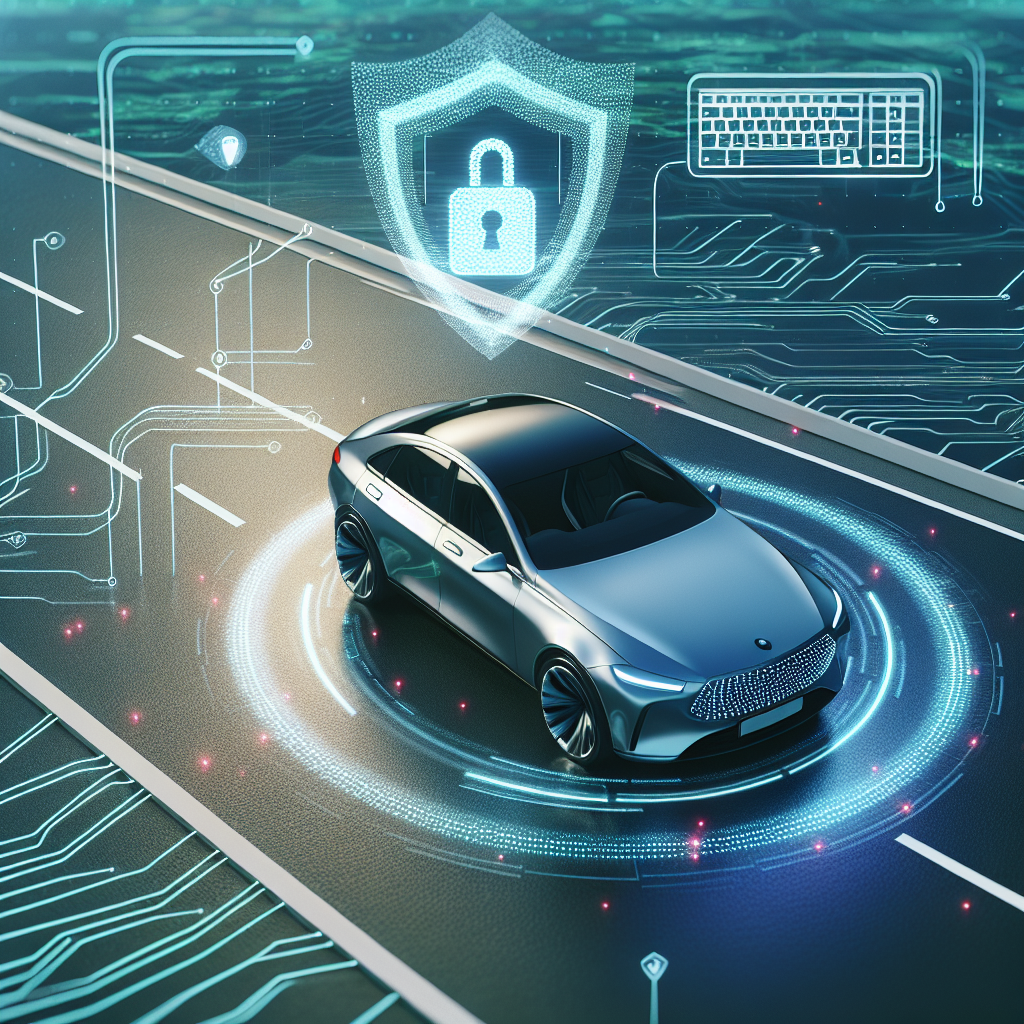Introduction
As autonomous vehicles (AVs) become increasingly prevalent, ensuring their security has emerged as a paramount concern. The integration of complex software systems and connectivity features in AVs opens up potential avenues for cyberattacks. However, hacking, when approached ethically, can play a crucial role in identifying and mitigating these vulnerabilities. This article delves into the question: Can hacking improve the security of autonomous vehicles?
Understanding Autonomous Vehicle Security
Autonomous vehicles rely on an intricate network of sensors, software algorithms, and connectivity features to operate safely and efficiently. The security of these systems is vital to prevent unauthorized access, data breaches, and manipulation of critical functions such as braking, steering, and navigation. Ensuring the robustness of AV security involves safeguarding against both external threats and internal vulnerabilities.
Key Components of AV Security
- Sensors and Hardware: These include LiDAR, cameras, radar, and other devices that collect environmental data.
- Software Algorithms: Processing units and algorithms that interpret sensor data to make driving decisions.
- Connectivity Features: V2V (vehicle-to-vehicle) and V2I (vehicle-to-infrastructure) communication systems.
- Data Storage and Processing: Onboard and cloud-based systems that store and process vast amounts of data.
The Role of Hacking in Enhancing Security
Hacking, particularly ethical hacking, involves probing systems to uncover and fix vulnerabilities before malicious actors can exploit them. In the context of AVs, ethical hackers can simulate cyberattacks to test the resilience of vehicle systems, identify weak points, and recommend improvements. This proactive approach is essential in staying ahead of potential threats in a rapidly evolving technological landscape.
Types of Ethical Hacking in AVs
- Penetration Testing: Simulating cyberattacks to evaluate the security of AV systems.
- Vulnerability Assessment: Identifying and categorizing security weaknesses in hardware and software components.
- Red Teaming: Conducting comprehensive simulations to test the effectiveness of security measures.
Ethical Hacking and Penetration Testing
Penetration testing is a cornerstone of ethical hacking, where security professionals attempt to breach AV systems using the same techniques as potential attackers. This process helps in uncovering hidden vulnerabilities that may not be apparent through regular testing. By systematically probing the vehicle’s hardware and software, ethical hackers can provide invaluable insights into areas that require fortification.
Benefits of Penetration Testing for AVs
- Early Detection of Vulnerabilities: Identifying security flaws before they can be exploited.
- Improved Security Measures: Informing the development of more robust defense mechanisms.
- Compliance and Standards: Ensuring that AV systems meet industry security standards and regulations.
Case Studies: Instances Where Hacking Improved AV Security
Jeep Cherokee Hack
One of the most notable instances was the remote hacking of a Jeep Cherokee in 2015, where security researchers demonstrated the ability to control critical functions such as steering and braking remotely. This incident underscored the potential risks associated with connected vehicles and prompted manufacturers to bolster their cybersecurity measures.
Tesla Vulnerability Discovery
Researchers identified vulnerabilities in Tesla’s system that could potentially allow unauthorized access to vehicle controls. The company responded by releasing software updates that patched these vulnerabilities, thereby enhancing the overall security of its vehicles.
Potential Risks Associated with Hacking Autonomous Vehicles
While ethical hacking offers significant benefits, it also poses potential risks if not managed properly. Unauthorized hacking attempts can lead to data breaches, loss of control over vehicle functions, and compromised passenger safety. Therefore, it is imperative to establish stringent protocols and ethical guidelines to ensure that hacking activities contribute positively to AV security.
Risks of Unauthorized Hacking
- Data Theft: Unauthorized access to sensitive data such as location information and personal identifiers.
- System Manipulation: Altering vehicle functions that can lead to accidents or erratic behavior.
- Privacy Invasion: Gathering personal data without consent, leading to privacy violations.
Best Practices for Integrating Hacking into AV Security Strategies
To maximize the benefits of hacking in enhancing AV security while minimizing risks, manufacturers and security professionals should adopt best practices that foster a secure and ethical hacking environment.
Establishing Clear Guidelines
Defining clear ethical guidelines and protocols for hacking activities ensures that efforts are aligned with the goal of improving security without causing harm. This includes setting boundaries on what can be tested and ensuring that sensitive data is handled appropriately.
Collaborative Efforts
Encouraging collaboration between manufacturers, security experts, and the hacking community can lead to more comprehensive security assessments. Sharing information about vulnerabilities and solutions fosters a collective approach to securing autonomous vehicles.
Continuous Monitoring and Updates
Security is an ongoing process. Implementing continuous monitoring systems and regularly updating software and security measures are essential to protect against emerging threats and evolving hacking techniques.
Conclusion
Hacking, when conducted ethically, plays a vital role in enhancing the security of autonomous vehicles. By identifying and addressing vulnerabilities before they can be exploited by malicious actors, ethical hackers contribute significantly to the safety and reliability of self-driving technology. As AVs continue to integrate more sophisticated systems, the collaboration between manufacturers and the hacking community will be crucial in developing robust security frameworks that ensure the safe and secure operation of autonomous vehicles.




